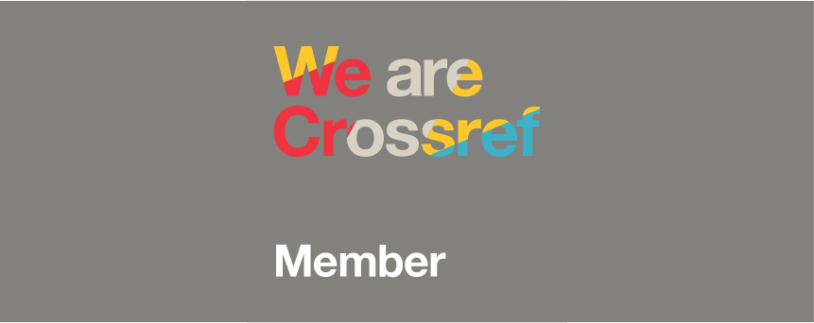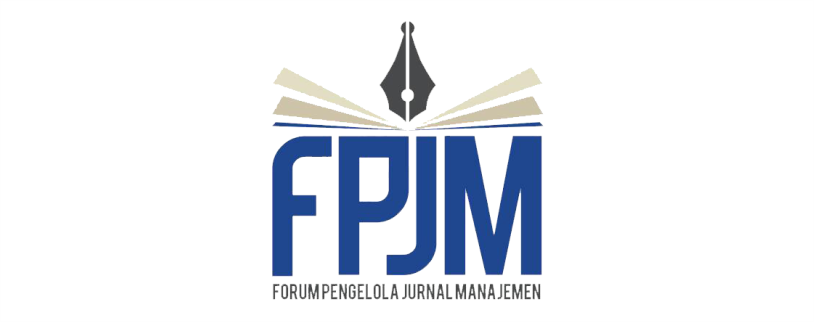Digital Empowerment of MSMEs: Implications of Digital Loans on Business Sustainability Through Selective Credit Schemes
DOI:
https://doi.org/10.26905/jmdk.v13i1.15691Keywords:
Business Sustainability, Digital Loan, LISREL, Selective Growth Credit Distribution, ResilienceAbstract
Digitalization in the financial sector has significantly transformed how banking institutions provide services to Micro, Small, and Medium Enterprises (MSMEs). One of the key innovations is the development of digital loans aimed at accelerating access to capital and promoting business sustainability among MSMEs.This study examines how the selective growth credit distribution program mediated the development of the digital loan model for digital financing and the MSMEs' business sustainability model at Bank BNI in Garut Regency. The rapid growth of digital loans offers MSMEs entrepreneurs’ additional capital, which may accelerate firm growth, but the consequences for business sustainability require more study. This quantitative survey study examines MSMEs that employed BNI's Flexi digital loan under the chosen growth credit distribution scheme. Structural Equation Modelling (SEM) and LISREL software will be used to evaluate the path model linking digital loan use, selective growth credit distribution programs, and MSMEs business sustainability. This study determined the moderating effects of selective growth credit distribution variables (R2=0.715), digital loan resilience (R2=0.731), MSME credit performance (R2=0.625), and server-based product development competency (R2=0.546) as significant factors influencing the business sustainability of MSMEs using Flexi Application at Bank BNI, Garut Regency.
Downloads
References
Adam, A., Wan Abdullah, W. R., Maruhun, E. N. S., Anwar, I. S. K., & Salin, A. S. A. P. (2022). The resource-based view theory and women microbusiness entrepreneurs: a contribution to business sustainability. International Journal of Academic Research in Business and Social Sciences, 12(10), 2915–2932. https://doi.org/10.6007/ijarbss/v12-i10/15103
Affandi, Y., Ridhwan, M. H. A., Mega, C., Santosa, P., Affandi, Y., Ridhwan, M. H. A., Mega, C., & Santosa, P. (2024). A Study of National Digital Adoption Index for Indonesian UMSEs (Expansion).
Ahmad, W. (2023). Asymmetric Information and Market Failure in Bank-Nbfc Co-Lending Model (Issue August).
Akpan, E., & Nnjeni, I. (2019). Contribution of Microfinance Banks to the Development of Small and Medium Scale Enterprises in Nigeria. Research Journal of Finance and Accounting, 7(11), 1–15.
Apriliani, R. (2024). Analysis of The Relationship Between Economic Growth , Micro Credit Absorption by MSMEs , Government Capital Regulations and Financial Digital Literacy. 4, 10197–10204.
Ashraf, D., Rizwan, M. S., & L’Huillier, B. (2022). Environmental, Social, And Governance Integration: The Case of Microfinance Institutions. Accounting and Finance, 62(1), 837–891. https://doi.org/10.1111/acfi.12812
Bai, C., Quayson, M., & Sarkis, J. (2021). COVID-19 Pandemic Digitization Lessons for Sustainable Development of Micro-and Small- Enterprises. Sustainable Production and Consumption, 27, 1989–2001. https://doi.org/10.1016/j.spc.2021.04.035
Bhattacharjee, M., Chakraborty, A., & Ghosh, D. (2023). Credit Allocation, Sustained Growth of MSMEs and Unorganized Sector: A General Equilibrium Study with Reference to the Less Developed Economies. In R. C. Das (Ed.), Inclusive Developments Through Socio-economic Indicators: New Theoretical and Empirical Insights (pp. 97–113). Emerald Publishing Limited. https://doi.org/10.1108/978-1-80455-554-520231008
Chen, S., & Guo, Q. (2021). Fintech and MSEs Innovation: an Empirical Analysis. Conference on Fintech, Innovation and Development (CFID), 1–24.
Chen, T., & Wang, S. (2023). Incomplete Information Model of Credit Default of Micro and Small Enterprises. International Journal of Finance and Economics, 28(3), 2956–2974. https://doi.org/10.1002/ijfe.2577
Cooper, D. R., & Schindler, P. S. (2014). Business Research Methods. In Business Research Methods.
Creswell. J.W. (1999). Mixed-Method Research: Introduction and Application. Handbook of Educational Policy, 455–472.
Darmawan, A. (2018). Influence of Loan Interest Rate , Non-Performing Loan , Third Party Fund and Inflation Rate towards Micro , Small and Medium Enterprises ( MSME ) Credit Lending Distribution at Commercial Banks in Indonesia. Advance in Social Science, Education and Humanities Research, 231(Amca), 308–311.
Elahi, K. Q., & Danopoulos, C. P. (2004). Microfinance and Third World Development: A Critical Analysis. Journal of Political and Military Sociology, 32(1), 61–77.
Freeman, R. E., Dmytriyev, S. D., & Phillips, R. A. (2021). Stakeholder Theory and The Resource-Based View of The Firm. Journal of Management, 47(7), 1757–1770. https://doi.org/10.1177/0149206321993576
George, C. B. O., Joseph, M. N., John, C. M., & Charles, A. M. (2017). The Relationship Between Access to Finance and Growth of SMEs in Developing Economies: Financial Literacy as A Moderator. Review of International Business and Strategy, 27(04).
Hasan, M., Le, T., & Hoque, A. (2021). How Does Financial Literacy Impact on Inclusive Finance? Financial Innovation, 7(1), 7–40. https://doi.org/10.1186/s40854-021-00259-9
Idris, A., Edwards, H., & McDonald, S. (2017). E-Commerce Adoption in Developing Countries SMEs: What Do the Prevailing Theoretical Models Offer Us? International Conference on E-Commerce, 1–8.
Ika, S. (2023). A Systematic Literature Review on Financing Micro, Small and Medium Enterprises (Msmes) : Concept and Interest Subsidy Guarantee Scheme. Journal of Social Political Sciences JSPS, 4(4), 387–409.
Ismanto, H., Wibowo, P. A., & Shofwatin, T. D. (2023). Bank stability and fintech impact on MSMEs’ credit performance and credit accessibility. Banks and Bank Systems, 18(4), 105–115. https://doi.org/10.21511/bbs.18(4).2023.10
Jayashree, S., Nurul, M., Reza, H., Agamudai, C., Malarvizhi, N., & Mohiuddin, M. (2021). Heliyon Industry 4 . 0 Implementation and Triple Bottom Line Sustainability : An Empirical Study on Small And Medium Manufacturing Firms. Heliyon, 7(August), e07753. https://doi.org/10.1016/j.heliyon.2021.e07753
Jofanka, A. D., Sa, S., Estianingtyas, F., & Ekonomi, F. (2023). Pengaruh Kecerdasan dan Literasi Keuangan Terhadap Ketahanan Keuangan UMKM di Sentra Wisata Kuliner Jambangan Surabaya. Jurnal Penelitian Manajemen Dan Inovasi Riset, 1(4), 1–13.
Karlan, D., & Morduch, J. (2010). Access to finance. In Handbook of Development Economics (1st ed., Vol. 5, Issue C, pp. 4703–4784). Elsevier BV. https://doi.org/10.1016/B978-0-444-52944-2.00009-4
Kartawinata, B. R., Mirda, L. A., Akbar, A., & Maharani, D. (2023). The effects of financial technology, financial literacy, and income on online loans in Indonesia’s millennial generation. Proc.SPIE, 12936, 1293616. https://doi.org/10.1117/12.3011826
Khusna Mustafa, H., Yaakub, S., Malaysia, U., & Yeop Abdullah, O. (2018). Innovation and Technology Adoption Challenges: Impact on SMEs’ Company Performance. International Journal of Accounting, Finance and Business, 3(15), 57–65. www.ijafb.com
Kingu, A., & Gomera, W. C. (2022). An Assessment of The Impact of Digitalization of Microcredit Services on Micro and Small Enterprises. African Journal of Applied Research, 8(1), 121–137. https://doi.org/10.26437/ajar.03.2022.9
Korth, M., Stewart, R., Van Rooyen, C., & De Wet, T. (2012). Microfinance: Development Intervention or Just Another Bank? Journal of Agrarian Change, 12(4), 575–586. https://doi.org/10.1111/j.1471-0366.2012.00375.x
Kumari, P. (2020). Theoretical Analysis of Microfinance on Poverty Alleviation. In Journal of Economic Info (Vol. 7, Issue 3, pp. 221–236). https://doi.org/10.31580/jei.v7i3.1709
Kurniawati, E., Handayati, P., & Osman, S. (2021). Digital Transformation of MSMEs In Indonesia During The Pandemic. Enterpreneurship And Sustainability Issues, 9(2), 316–331.
Lertwongsatien, C., & Wongpinunwatana, N. (2003). E-commerce Adoption In Thailand: An Empirical Study of Small and Medium Enterprises (SMEs). Journal of Global Information Technology Management, 6(3), 67–83. https://doi.org/10.1080/1097198X.2003.10856356
Martínez-Román, J. A., & Romero, I. (2017). Determinants of Innovativeness in SMEs: Disentangling Core Innovation and Technology Adoption Capabilities. Review of Managerial Science, 11(3), 543–569. https://doi.org/10.1007/s11846-016-0196-x
Martini, M., Setiawan, D., Suryandari, R. T., Brahmana, R. K., & Asrihapsari, A. (2023). Determinants of Digital Innovation in Micro and Small Industries. Economies, 11(6), 1–17. https://doi.org/10.3390/economies11060172
Molenaar, P. C. M. (2019). Review of Multivariate Analysis with LISREL. Structural Equation Modeling: A Multidisciplinary Journal, 26(2), 324–327. https://doi.org/10.1080/10705511.2019.1566002
Muliadi, M., Darma, D. C., & Kasuma, J. (2020). Finance & Banking Studies MSMEs as Mediation in The Effects of Investment Credit , Interest Rates , and Labor on Economic Growth : Evidence from Indonesia. Finance & Banking Studies, 9(2).
Mushi, R. M. (2020). Assessment of the needs of ICT Skills on Employability in SMEs : A VFT approach Assessment of the Needs of ICT Skills on Employability in SMEs : A VFT Approach. 29(1).
Nair, M., & Njolomole, M. (2020). Microfinance, Entrepreneurship and Institutional Quality. Journal of Entrepreneurship and Public Policy, 9(1), 137–148. https://doi.org/10.1108/JEPP-07-2019-0061
Nastiti, D. I., Nur, S., Fadhlurrahmah, A., & Hermina, N. (2021). The Impacts of Macro Environment And Customer Behavior on Performance Improvement Through Marketing Program (Case Study on The Use Digital Payment System QRIS By SMES in West Java, Indonesia). In Turkish Journal of Physiotherapy and Rehabilitation (Vol. 32, Issue 3).
Omrani, N., Rejeb, N., Maalaoui, A., Dabic, M., & Kraus, S. (2024). Drivers of Digital Transformation in SMEs. IEEE Transactions on Engineering Management, 71, 5030–5043. https://doi.org/10.1109/TEM.2022.3215727
Ozili, P. K. (2020). Theories of Financial Inclusion. In Uncertainty and Challenges in Contemporary Economic Behaviour (pp. 89–115). https://doi.org/10.1108/978-1-80043-095-220201008
Pradhan, R. P., Arvin, M. B., Nair, M. S., Hall, J. H., & Bennett, S. E. (2021). Sustainable Economic Development in India: The Dynamics Between Financial Inclusion, ICT Development, and Economic Growth. Technological Forecasting and Social Change, 169(January), 120758. https://doi.org/10.1016/j.techfore.2021.120758
Prayitno, E., Tarigan, N., Sukmawaty, W., & Mauidzoh, U. (2022). Kebangkitan UMKM Pasca Pandemi Covid-19. Jurnal Pengabdian Kepada Mayarakat (J-Abdi), 2(4), 4787–4794. https://www.bajangjournal.com/index.php/J-ABDI/article/view/3641/2684
Purboadji, A., Hakim, D. B., Siregar, H., Sembel, R., Barat, J., Barat, J., Barat, J., & Author, C. (2021). Strategies for Increasing MSME Credit Growth in Regional Development Banks in Emerging Countries: Analytical Hirarchy Process Approach. International Journal of Management (IJM), 12(7), 88–98. https://doi.org/10.34218/IJM.12.7.2021.009
Putra, F. I. F. S., Subagyo, H., Budiantoro, R. A., & Haziroh, A. L. (2022). Digital-Based Economic Recovery Program for Micro-enterprises in Indonesia. Jurnal Organisasi Dan Manajemen, 18(December 2019), 13–30. https://doi.org/10.33830/jom.v18i1.1763.2022
Rahayu, S. K., Budiarti, I., Firdaus, D. W., & Onegina, V. (2023). Digitalization and Informal MSMEs: Digital Financial Inclution For MSMEs Development in The Formal Economy. Journal Of Eastern European And Central Asian Research, 10(1).
Rosadi, R., Info, A., & Loans, O. (2025). Online Loans : A Solution or a Problem ? Perspectives on Education and Society. International Journal of Public Administration and Policy, 1(1), 31–38.
Sallati, C., Andrade, J. De, & Schützer, K. (2019). Professional Skills in The Product Development Process : the Contribution of Learning Environments to Professional Skills in the Industry 4 . 0 Scenario. Procedia CIRP, 84(March), 203–208. https://doi.org/10.1016/j.procir.2019.03.214
Saptia, Y., Nugroho, A. E., Sorkarni, M., Ermawati, T., Syamsulbahri, D., Astuty, E. D., Suardi, I., & Yuliana, R. R. D. (2021). Determinants of Accessibility to Fintech Lending: A Case Study of Micro and Small Enterprises (MSEs) in Indonesia*. Journal of Asian Finance, Economics and Business, 8(10), 0129–0138. https://doi.org/10.13106/jafeb.2021.vol8.no10.0129
Singh, A. (2024). Information Asymmetry and High Transaction Costs: Challenges Form MSMEs In Securing Financial Support. GNLU Journal Of Law & Economic, 7(2), 1–18.
Suroso, J. S., & Wahjudi, Y. (2021). Analysis of Factors Affecting Satisfaction and Loyalty of Digital Loan Customer at PT. Bank XYZ. Journal of Theoritical and Apllied Information Technology, 99(11).
Tanti, K., Ayu, I. G., Omika, A., Das, G., Ayu, I. G., & Utari, D. (2018). MSMEs Credit Distribution and Non-Performing Loan towards Banking Companies Profit in Indonesia. International Journal of Social Science and Humanities, 2(1), 10–23. https://doi.org/10.29332/ijssh.v2n1.72
Wellalage, N. H., & Locke, S. (2016). Informality and Credit Constraints: Evidence from Sub-Saharan African MSEs. Applied Economics, 48(29), 2756–2770. https://doi.org/10.1080/00036846.2015.1128081
Xing, Y. (2022). Economic Analysis of Digital Transformation and Upgrading of The Small Loan Service Industry. In Genena Finance Research Institute. University of Geneva.
Published
Issue
Section
License

This work is licensed under a Creative Commons Attribution-ShareAlike 4.0 International License.
Authors who publish with this journal agree to the following terms:
(1)Â Copyright of the published articles will be transferred to the journal as the publisher of the manuscripts. Therefore, the author confirms that the copyright has been managed by the journal.
(2) Publisher of Jurnal Penelitian is University of Merdeka Malang.
(3) The copyright follows Creative Commons Attribution–ShareAlike License (CC BY SA): This license allows to Share — copy and redistribute the material in any medium or format, Adapt — remix, transform, and build upon the material, for any purpose, even commercially.












